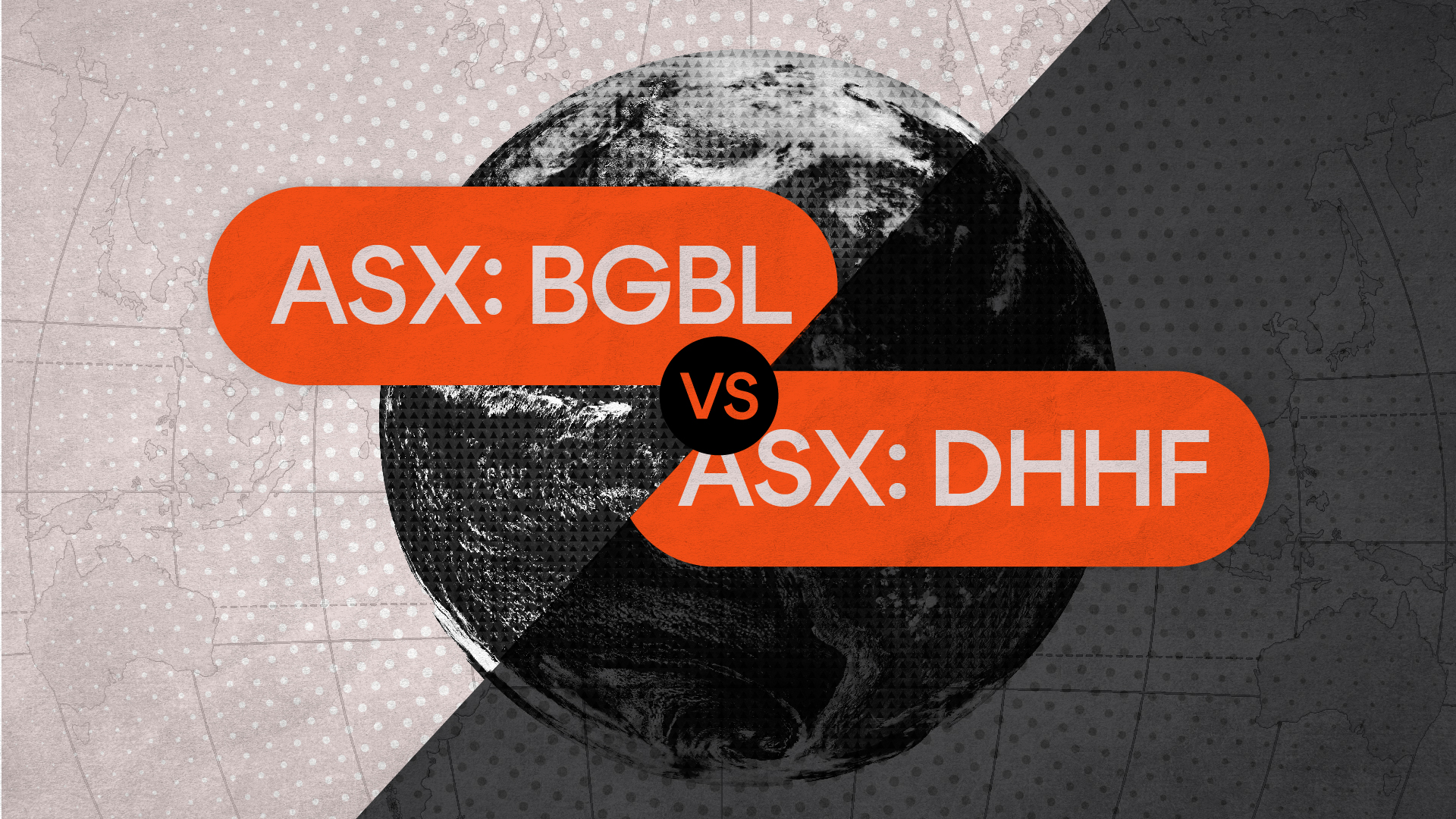If you’ve ever watched a finance drama, you’re probably familiar with the glamorous spectacle of traders hollering, executives power-lunching, and analysts spouting off Greek letters like they’re trying to summon some sort of ancient, money-making deity.
But investing isn’t a movie, and most of us aren’t trying to reenact The Wolf of Wall Street in our living rooms. So today, let’s talk about something significantly less glamorous but considerably more crucial to your financial well-being: the importance of a solid, stalwart, trustworthy core portfolio. This isn’t the sort of thing you’ll see Gordon Gekko shouting about, but it’s what helps keep your financial ship steady when the storms of market volatility start to blow.
Now, you might be thinking: “A core portfolio? Really? That’s like telling me to wear a seatbelt. We get it, it’s important.” But here’s where things get interesting: because we’re going to bring in our friends, the Exchange-Traded Funds, better known as ETFs.
We’ll assume you’re not Warren Buffett. You can’t buy up massive stakes in blue-chip companies or influence their management. But you still want to own a diverse array of high-quality businesses, to spread your risk and get your fair share of global economic growth. You might be tempted to buy individual stocks, like a DIY mini-Buffett. But unless you have his time, wisdom, and sheer investing chutzpah, that approach could go… let’s call it sub-optimally.
And that’s where ETFs come into the picture. They’re like an entire footy team in a box – and you get to be the team owner, no kicking skills required. ETFs could be your ticket to owning that diverse array of businesses, with a lot less stress and effort.
Let’s see how the humble core portfolio and the modern marvel of ETFs can combine to help everyday investors achieve their financial goals, and look at some of the tools available with just a few button-clicks.
Strategic exposures to strengthen your core
A strong core portfolio is an important part of an overall investment strategy as it provides a stable base of investments that are designed to generate consistent returns over the long term, regardless of short-term market fluctuations. By focusing on the core of your portfolio, you can seek to manage risk and volatility while still achieving your long-term investment goals.
The lowest cost Australian shares index ETF in the world
Australian shares form the backbone of many Australian investors’ portfolios, and for good reason. Apart from the attractive long-term returns and well-known companies, Australian shares also offer the benefit of franking credits, which enhance the after-tax returns for Australian investors.
A200 aims to track the performance of an index (before fees and expenses) comprising 200 of the largest companies by market capitalisation listed on the ASX. These include familiar names such as BHP Group, Commonwealth Bank of Australia, and CSL.
A200 is available for the ultra-low management cost of just 0.04% p.a., making it the lowest cost Australian shares index ETF in the world1.
-
A200
Australia 200 ETF
Global shares: Broadly diversified and low cost
Australia makes up less than 2% of global sharemarkets2, so by investing purely in Australian shares, you miss out on a huge portion of global businesses, and the diversification benefits that come with them.
Prior to the advent of ETFs, investing in global shares was complex, expensive and time consuming. ETFs make global diversification easy. BGBL, for example, allows you to access approximately 1,500 shares across 20 global developed markets in a single trade. And all for a low management fee of 0.08% p.a.3
BGBL also excludes Australian shares, making it an effective diversifier for an investor who already holds a portfolio of Australian shares.
-
BGBL
Global Shares ETF
Nasdaq: Invest in the way you live
Personal computers, the internet, smartphones, search engines, AI. Each of these technologies has changed (or is changing) the way we live, work, and communicate. And technological innovation is showing no signs of slowing.
It should come as no surprise then, that many technology companies now rank among the largest companies in the world. And many of those at the forefront are listed on the Nasdaq exchange in the US, including Apple, Microsoft, Nvidia, Alphabet, and Amazon.
The Nasdaq-100 Index (which NDQ aims to track) consists of the 100 largest non-financial companies listed on the Nasdaq. With a strong focus on technology, it offers exposure to a sector with the potential for high growth, while also offering diversification benefits for Australian investors, given the under-representation of this sector in the Australian market.
-
NDQ
Nasdaq 100 ETF
Bonds: Defence and income
Bond yields have risen significantly since their 2021 lows. As a result, many investors are again considering the traditional role bonds have played, offering defensive characteristics and income. OZBD is designed to be a core portfolio allocation for fixed income, providing exposure to high quality Australian government and corporate bonds.
The holdings in OZBD have an average credit rating of AA, and offer a yield-to-worst of 4.71% p.a.4
-
OZBD
Australian Composite Bond ETF
Enhance the returns on your cash
Cash plays an important role in portfolios, offering liquidity and flexibility. But cash comes in many forms – it’s more than just savings accounts and term deposits.
Betashares Australian Cash Plus Fund (managed fund) (MMKT) holds cash and Australian dollar denominated money market securities. Money market securities are securities with, usually, low credit risk, low capital sensitivity to movements in market interest rates, and a term to maturity of less than 12 months.
MMKT currently offers an estimated yield to maturity net of fees of 4.66% p.a5.
-
MMKT
Australian Cash Plus Fund (managed fund)
ETFs provide the tools to build a long-term portfolio
ETFs provide investors with a simple and cost-effective way to build a diversified portfolio. The five ETFs listed above offer exposure to a range of different asset classes, sectors, and geographies. A core portfolio built with ETFs can help investors achieve their long-term investment goals, while also assisting to manage risk and volatility via their diversification benefits.
Buy ETFs effortlessly with Betashares Direct
Betashares Direct is the new investing platform designed to help you build wealth, your way. Access the 350+ ETFs that trade on the ASX. Register for early access to Betashares Direct here:
References:
1. Source: Bloomberg, based on expense ratios of Australian shares ETFs based in Australia or on overseas exchanges. Other costs, such as transaction costs, may apply. Refer to the PDS for more information.
2. Source: Commsec
3. Other costs, such as transaction costs, may apply. Refer to the PDS for more information.
4. As at 9 February 2024. See this article for an explanation of yield to worst. Yield is variable and may be lower at time of investment.
5. As at 9 February 2024. See this article for an explanation of yield to maturity. Yield is variable and may be lower at time of investment.
Formerly Managing Editor at Livewire Markets. Passionate about investments, markets, and economics.
Read more from Patrick.



5 comments on this
Hi
I am a British citizen. Is your investment available for UK residents
Hi Abayomi,
All of Betashares funds are Australian domiciled and trade exclusively on the Australian Securities Exchange. To get access to Betashares ETFs you will need to open a trading account with a provider who gives access to ASX listed securities.
Kind regards,
Betashares Client Services
Hi Betashares,
Are there any differences between buying the NDQ ETF directly thru Betashares vs bank’s trading platform?
Thanks
I’m in australia. What’s your suggestion between the QLTY and BGBL ETF ? .. just a small investor wanting to start an ETF and grow it
Hi Pete,
We can’t recommend or suggest what investments are right for you, for this you’d need to get personal financial advice from a licenced adviser.
Some of the differences between the products include; QLTY invests in 150 global companies ranked by the highest quality score. Quality score rankings are based on return on equity, debt-to-capital, cash flow generation ability, and earnings stability. QLTY aims to produce superior long-term performance compared to benchmark global indices.
BGBL on the other hand, provides exposure to companies from a broad range of global locations (ex-Australia) across a wide range of sectors. It aims to track an index (before fees and expenses) of around 1,500 companies from developed markets in more than 20 countries. BGBL is market capitalisation weighted, meaning that the larger a company is (by market capitalisation), the larger the position in the portfolio.
For more information, you can consult the fund pages, product disclosure statements, and target market determinations:
https://www.betashares.com.au/target-market-determinations/
https://www.betashares.com.au/files/collateral/pds/RBTZ-ASIA-INCM-QLTY-pds.pdf
https://www.betashares.com.au/files/collateral/pds/BGBL-pds.pdf
https://www.betashares.com.au/fund/global-quality-leaders-etf/
https://www.betashares.com.au/fund/global-shares-etf/
Cheers,
Patrick